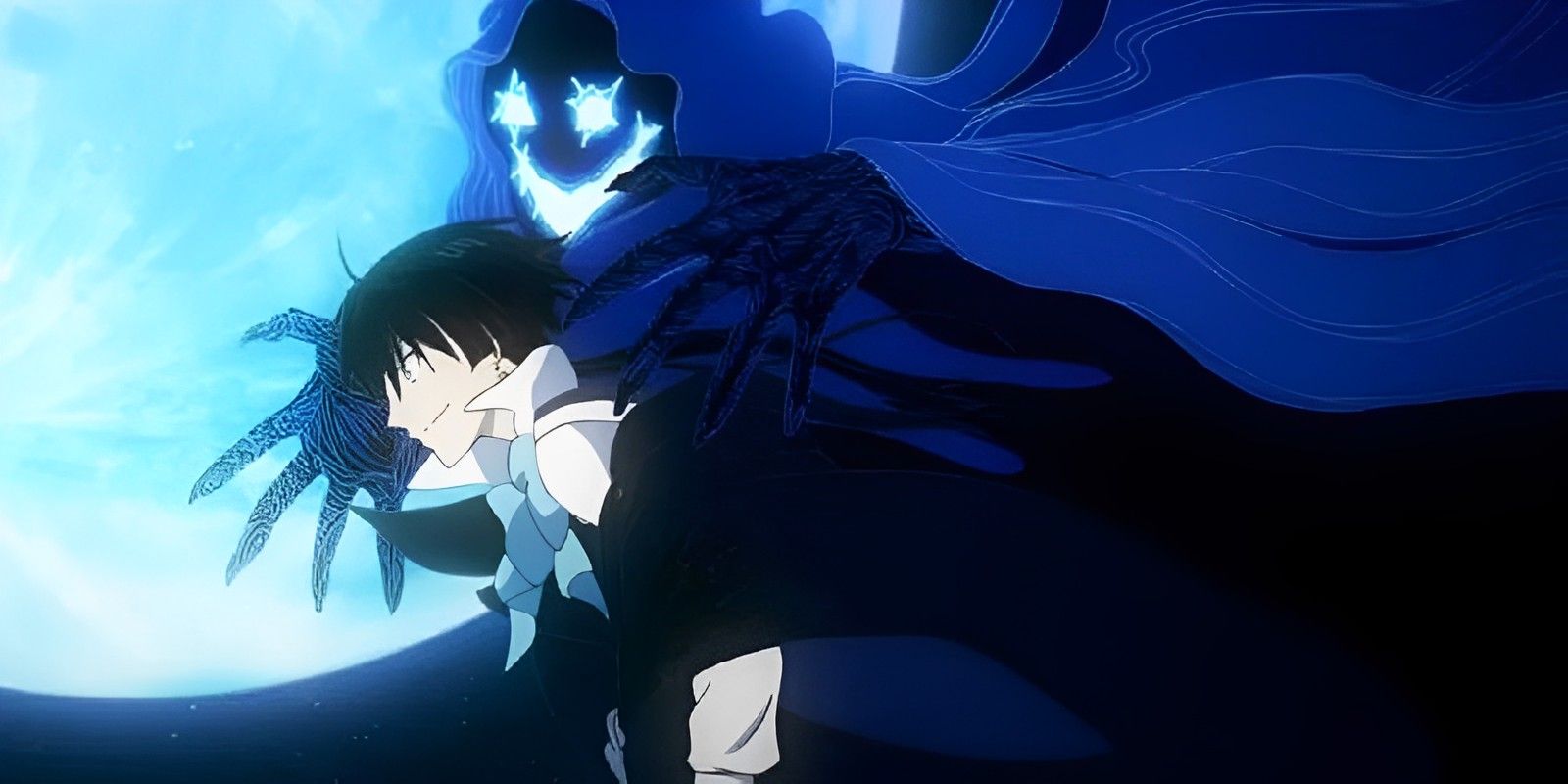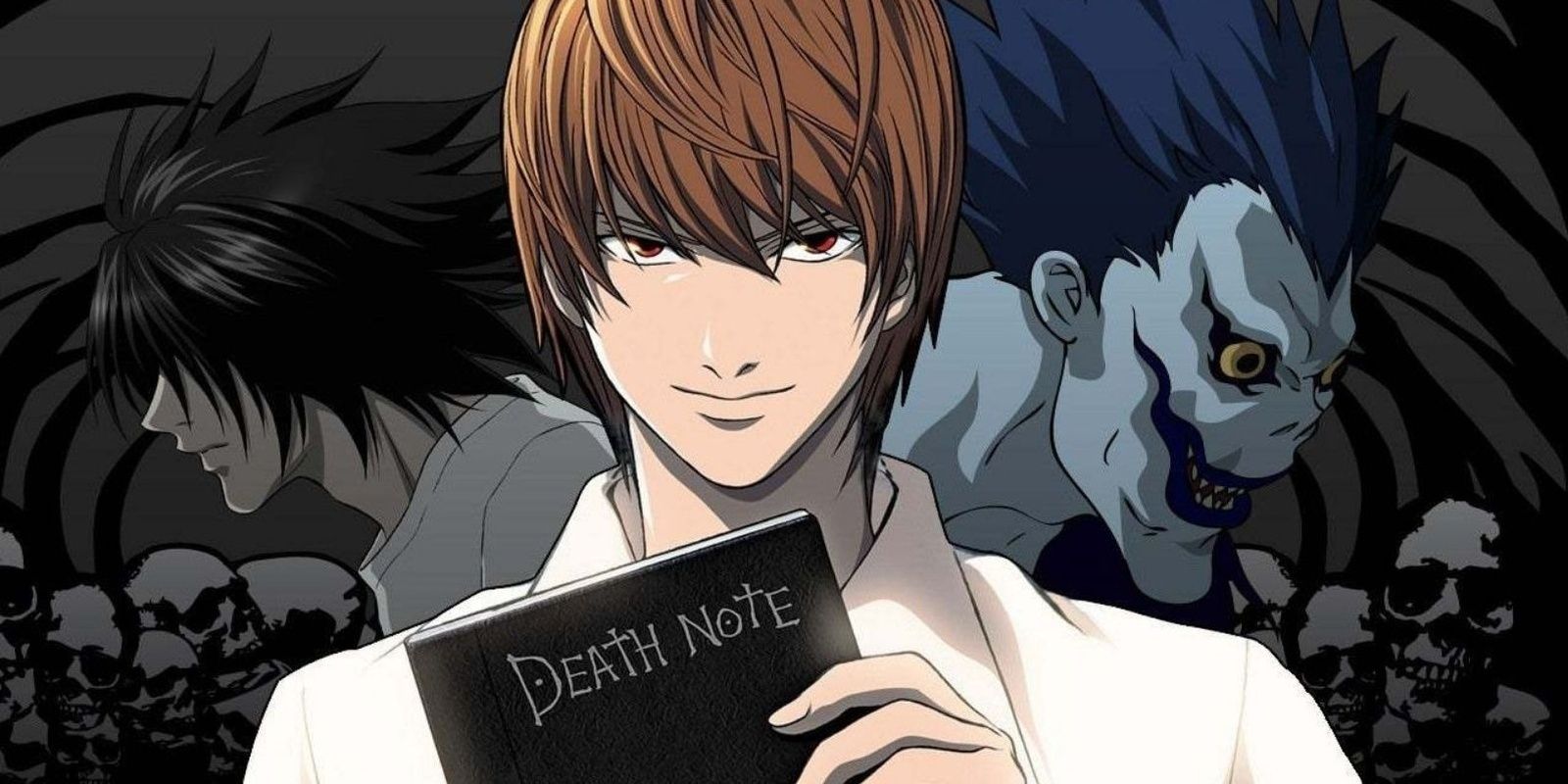
Unveiling the Enigmatic Connection: Anime's Intriguing True Name Concept

Exploring the fascinating connection between anime and the profound concept of true names, this article delves into how various popular anime series like BLEACH, Death Note, and Noragami creatively incorporate and explore this concept
Highlights
The true name concept, which gives total control over an object or being, is a prevalent trope in mythology, fantasy, and religion.
Anime and manga frequently delve into the concept of true names, where characters employ their true names to unleash their unique abilities and powers. BLEACH, The Case Study of Vanitas, Death Note, Natsume's Book of Friends, and Noragami are notable examples that offer diverse interpretations and depictions of this concept in anime.
Throughout mythology, fantasy, and religion, the concept of the true name has remained a timeless trope. It revolves around the idea that every entity in existence possesses a name intrinsically connected to its essence. It is believed that possessing this true name grants absolute authority and control over the entity in question. Unsurprisingly, numerous anime and manga works have incorporated this concept, but the evolution of its portrayal over time remains a fascinating subject to explore.
Background
The concept of the true name is a common element in storytelling, reflecting the significance of names in cultures and religions throughout history. Names serve the purpose of identification, as exemplified by Carolus Linnaeus's taxonomy system for naming life forms. However, names also pose metaphysical questions. It is believed that a true name encapsulates the essence of the object it refers to, leading to extensive exploration of this concept in religious contexts. In Kabbalism, the true name of God is considered too powerful to be uttered, hence it is represented by the abbreviation YHWH, known as the Tetragrammaton.
In Egyptian mythology, Isis managed to acquire Ra's true name through a trick, which bestowed her with the ability to place her son on the throne. Mythology and religion abound with names, often presenting multiple names for the same objects or entities within a belief system. For example, in Hinduism, Vishnu, the supreme deity, is known by various names and takes on an avatar, a physical incarnation, during times of turmoil. The idea of names possessing power or influence is a widely studied phenomenon. In the realm of anime, the concept of the true name is influenced by superstitions, myths, religious beliefs, urban legends, and various other developments, leading to its exploration in anime and manga.
Basic Rules
In the realm of storytelling, the true name concept often explores magical or fantastical settings where knowing the true name of a magical being grants dominion over it. This concept is expressed differently in various mythological "sects." The level of control or subjugation varies in each story, and more powerful entities typically have multiple names that either represent different expressions of the being or carry equal weight in invoking the concept. Multiple names for ontologically complex beings signify divine infallibility and humanity's inability to comprehend their vast existence, with each name emphasizing a distinct "immutable" quality.
The Hebrew deity's name is intentionally elusive to contain its incomprehensibly immense power. This has led to the well-known Christian prohibition of invoking the deity's name "in vain." The interpretation of this prohibition varies, but it is a simplified interpretation of the true name concept. Anime heavily explores and utilizes the concept in its storytelling and character development, where names play a crucial role in characterization and building the anime's world.
BLEACH
BLEACH: Thousand-Year Blood War Episode 10 – Zanpakuto Origins
In the world of BLEACH, created by Tite Kubo, names hold great importance. The Shinigami, also known as the "gods of death," tap into their true power by developing a deep bond with their swords, known as Zanpakutō or Soul Slayers. These swords, called Asauchi, are blank slates that gain personalities as the Shinigami imprints their essence onto them, forming unique weapons. The names of the Zanpakutō are then discovered and used in battle to unleash their individual properties. The Zanpakutō can exist in two states: Shikai, the initial release, and Bankai, the final release. Both require extensive training and knowledge of the sword's name, often accompanied by specific invocation phrases. Byakuya Kuchiki, for example, triggers his Zanpakutō with the phrase "Scatter, Senbonzakura."
BLEACH pushes this concept further with Yumichika Ayasegawa, the Fourth Seat of Squad 11, who intentionally refers to his Zanpakutō as "Fuji Kujaku" or "Wisteria Peacock" instead of its disliked name, Ruri'iro Kujaku or "Azure Peacock." This allows him to achieve a partial release of his Shikai in a lazy and unenthusiastic manner. Arrancars and Fullbringers also have similar systems of accessing their powers through invocation phrases and names. Another example of this concept is Ichibe Hyōsube, the Captain of Squad Zero, who is known as the "Monk Who Calls the Real Name." He possesses the ability to identify and manipulate the true names of beings and objects. His Zanpakutō, Ichimonji or "The Written Character 'One'," takes the form of a calligraphy brush capable of imbuing strokes with powerful meanings. One of Ichibe's most terrifying abilities is the power to sever names. By cutting the names of the objects he strikes, their effectiveness is severely diminished or completely nullified.
The Case Study of Vanitas
Death Note
The Case Study of Vanitas delves into the intriguing concept of true names, taking place in a fictionalized 19th century Europe. The protagonist, Vanitas, a self-proclaimed "Vampire Doctor," embarks on a mission to heal cursed vampires using the infamous grimoire known as "The Book of Vanitas." These cursed vampires suffer from a condition called "malnomen," a curse that causes erratic behavior due to corruption of their true name. This corruption may be linked to a mysterious and controversial figure called "Charlatan." Vanitas utilizes the immense power bestowed upon him by the grimoire to access the true names of the ailing vampires and restore their well-being.
The Death Note series, a renowned anime and manga, prominently features the notion of true names. This concept is portrayed through the titular notebooks, which hold immense power, and the Shinigami Eyes, aptly named for their ability to reveal a person's real name hovering above their head. However, this knowledge comes at a steep cost—a sacrifice of half of the individual's lifespan.
Natsume's Book of Friends
An earlier manga series, Natsume's Book of Friends, was created by Yuki Midorikawa in 2003. The story revolves around a young boy named Takashi Natsume, who becomes capable of seeing yōkai (supernatural creatures) after discovering an ancient notebook that once belonged to his maternal grandmother, an exorcist. Utilizing her exceptional powers, Takashi's grandmother bound numerous yōkai to the notebook, enabling her to summon them at will. Determined to fulfill his grandmother's legacy, Takashi embarks on a quest to return all the names contained within the notebook, which he aptly names the "Book of Friends." Assisting him in this endeavor is Madara, a yōkai who had a personal connection with Takashi's grandmother during her lifetime.
Noragami
The central theme in Noragami, an enchanting narrative by Adachitoka rooted in Shinto beliefs, revolves around the concept of true names. The story follows Yato, a forgotten god, as he undertakes odd jobs for a mere 5 yen each, aiming to collect enough funds to create his own sacred shrine. In this captivating universe, the power of gods is directly proportional to the amount of worship they receive. Unfortunately, in modern times, many gods have suffered loss and even faced death due to the scarcity of believers. Motivated by this plight, Yato embarks on a mission to establish his own shrine.
In Noragami, gods skillfully exorcise malevolent spirits, known as "ayakashi," with the assistance of their loyal companions called Shinki. These Shinki are divine instruments, previously human souls who have been renamed and embraced by the deity. The act of naming a Shinki is an intimate and sacred bond that unites gods with their indispensable weapons. However, there is one extraordinary Shinki named Nora, also known as "Stray," who possesses multiple names bestowed upon her by various gods simultaneously. If a Shinki's human name is revealed, they regain their memories, but this revelation often leads to overwhelming trauma that corrupts their essence.
Anime
The Japanese title of Spirited Away, "Sen to Chihiro no Kamikakushi," exemplifies the true name concept in anime. While the title refers to "Sen and Chihiro," the main character loses her name and is known only as "Sen" after being forced to work in a supernatural bathhouse. In Japanese, "Chihiro" is written as 千尋, meaning "1000 fathoms," but when she is "spirited away," the second character is removed. In the film, retaining one's name is crucial for maintaining agency. Names in anime hold significance and convey complex ideas, as they are written and pronounced in creative ways that reflect the intricacies of the Japanese language. In short, names play a vital role in anime.














